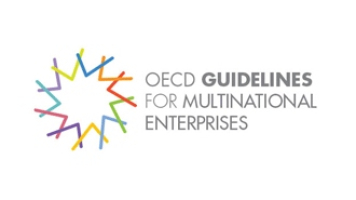OECD releases letters clarifying banks’ human rights responsibilities
ryan@banktrack.org

ryan@banktrack.org
At the OECD's Global Forum on Responsible Business Conduct in Paris last month, the OECD published a series of letters clarifying banks' human rights responsibilities under the UN Guiding Principles on Business and Human Rights. The letters date from November and December 2013, but have now been published for the first time.
The letters have far-reaching implications for banks, which have in some cases sought to play down their responsibilities for human rights abuses caused by companies or projects they help finance.
The UN Guiding Principles, unanimously adopted by the UN Human Rights Council in 2011, and the OECD Guidelines on Multinational Enterprises state that business enterprises must "avoid causing or contributing to adverse human rights impacts through their own activities, and address such impacts when they occur", and must "seek to prevent or mitigate adverse human rights impacts that are directly linked to their operations, products or services by their business relationships, even if they have not contributed to those impacts."
However, a 2013 report into current approaches and practices to due diligence in the financial sector found that "FIs view themselves to be indirectly linked to an adverse human rights impact through the financial services they provide to their clients". By arguing that they were only "indirectly linked" to impacts they finance, they were seeking to evade any responsibilities to avoid, prevent, or mitigate such impacts.
No such thing as indirect links to human rights impacts
In one of the letters released by the OECD, the UN Office of the High Commissioner for Human Rights (OHCHR) makes clear that the banks were mistaken in their interpretation, and that "there is either a (direct) link between the products, services or operations of a business enterprise and an adverse impact through a business relationship, or there is no link". Further, the letter makes clear that such a direct link can arise "through business relationships with investee companies, project partners, clients and other entities."
This clearly establishes that banks do have a responsibility under the OECD Guidelines and the UN Guiding Principles to try to prevent or mitigate adverse human rights impacts caused by their client companies.
Banks can also contribute to human rights impacts through their finance
It is clear that banks can cause human rights impacts through their own activities, for example through discriminating against women or ethnic minorities in their hiring or mortgage provisions. But the OHCHR letter also makes clear that banks can also contribute to adverse human rights impacts through their finance, "such as if financing is provided for a project that will result in widespread displacement of communities, without safeguards in place".
UN conclusions strengthen the case for bank remediation processes
The distinction between contributing to human rights impacts and being directly linked to them through a business relationship is important because it determines what is expected of banks and other businesses according to the OECD Guidelines and the Guiding Principles.
For example, where banks contribute to adverse human rights impacts, the OECD Guidelines and Guiding Principles state that they should "provide for or cooperate in their remediation through legitimate processes". Where a bank has not contributed to such impacts, "the responsibility to respect human rights does not require that the enterprise itself provide for remediation, though it may take a role in doing so."
Currently, there is no sign of banks establishing processes to remedy human rights impacts that they have contributed to. BankTrack is calling on banks to ensure grievance mechanisms are established for projects which present human rights risks, and to establish their own mechanisms that allow rights holders affected by bank financed projects and activities access to remedy. BankTrack is also collaborating with OECD Watch to explore possibilities for using the OECD Guidelines' complaint procedure to incentivise banks to establish such mechanisms.
